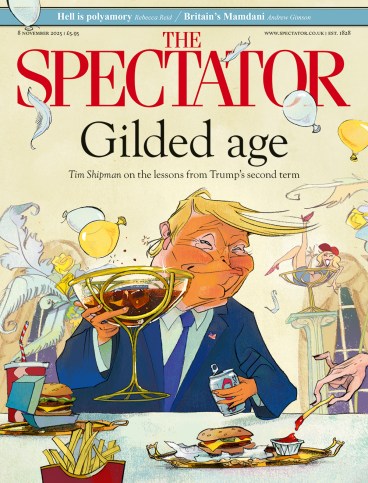
Washington, D.C.
When John Swinney, the SNP leader, and Peter Mandelson visited Donald Trump in the Oval Office a few months ago, the President showed them three different models for his planned renovation of the East Wing of the White House, which he has demolished to build a new ballroom. ‘If you’re going to do it,’ Scotland’s First Minister suggested, ‘you might as well go big.’
This Wednesday marked one year since Trump’s election victory, and going big captures the essence of his second term – bold and controversial moves, which have impressed even British politicians who thought him reckless in his first term. When Trump visited Chequers on his state visit to the UK in September, one senior official told him: ‘You’re the most consequential president of my lifetime.’
It has not all been decorous. Convention, tradition and the law have been subordinated to delivery. The East Wing redevelopment is a case in point. ‘When they were bulldozing, they came across some Jefferson-era brick,’ explains one White House watcher. ‘They kept going.’ Why tiptoe around the author of the Declaration of Independence when there is a real estate deal to complete?
In Washington, everyone knows what Trump wants. Starmer has been unable to provide similar clarity
And yet the Trumpites see themselves as like the founding fathers, forging a new nation. ‘The bricks have become trophies,’ says one Washingtonian. ‘It’s like people keeping chunks of the Berlin Wall.’ Just as that was torn down, so Trump’s second term, much more radical and (so far) successful than the first, has been one of discontinuity and disruption.
After speaking to more than a dozen British and American officials, aides to the President and Prime Minister, civil servants, former diplomats in both countries, pollsters and political strategists, it is clear there is much that Trump II can teach Britain. In his first term, Trump was held back by staff who didn’t share his world view and the claims of Russian interference in the 2016 election. This year, he issued hundreds of executive orders and successfully brought migration to a halt at the Mexican border. Private polling circulating in the highest reaches of the Republican party shows that even 22 per cent of those who voted for Kamala Harris a year ago support what Trump is doing on immigration.
Those who helped him triumph say Trump II is very different from Trump I, in that he ‘brought in a team which supports his agenda’ and his chief of staff, Susie Wiles, enforced a rigorous policy of loyalty to the President. ‘In this administration everyone has to be loyal to everyone,’ a Washington-based diplomat observes. ‘There is no infighting, it’s simply not allowed.’
This unity of purpose and direction has given Trump the ability to ‘move fast and break things’ – and even the British in Washington, who were horrified in 2016, seem energised by his example this time around.
‘Think about the speed at which we’ve been able to move,’ says one White House official. ‘We’ve cut out so much infighting and been able to execute. In the first term a lot of cabinet members thought they should be president. We also found there were a lot of unnecessary layers in the bureaucracy. Now the President gets the right people in the room, and if we need to move fast we will. We didn’t want to be Tony Blair, after a long campaign saying, “What do we do now?” on day one. The President said he wanted the “big beautiful bill” passed by 4 July. There was a mentality to get things done. That was very different this time.’
These are lessons that it is now too late for Labour to learn, after 16 months in power. This is a government that never seemed clear on what it wanted to achieve at the beginning, nor, as things have deteriorated, on what to do next. In Washington, every-one knows what Trump wants. Keir Starmer has been unable to provide similar clarity.
However, Trump II is providing a blueprint for Reform’s Nigel Farage, another populist insurgent, on how to seize power and then use it effectively in the face of a hostile political establishment.
Key players in the White House and the MAGA movement say that Farage must be ready on day one, as Trump was, to impose his power on the permanent civil service. That could mean ramming legislation through parliament in a single day to give Downing Street the ability to issue emergency orders as well as immediately publish bills on key issues.
Dominic Cummings, Boris Johnson’s former chief adviser in No. 10, who has discussed how to reshape Whitehall with Farage, wrote on Sunday: ‘A true strategy needs defined goals, a plan for controlling the government and building a team… It should include writing key primary legislation well in advance of an election.’
In Trump’s case, key policy proposals were worked up by the Heritage Foundation thinktank and the America First Policy Institute, who also identified people who could be drafted in to work on them in government. ‘They had hundreds of executive orders ready to go,’ says one who admired Trump’s preparations. ‘Susie Wiles said, “The President wants to deliver on migration, tariffs and tech”, and worked out who could deliver it. She sent Stephen Miller to go after woke stuff and [Robert] Lighthizer to work on tariffs. She sent the attorney general’s office to go after the people who tried to shaft Trump in the first term. The orders went out, the foot soldiers did their thing. It was a masterclass.’
Asked how Reform UK could prepare for power, Sebastian Gorka, the White House head of counterterrorism, says: ‘That’s easy. Be even more like President Trump.’
While curbing migration was a central election pledge, Trump’s more notable achievements have come in the international arena. From the once queasy Europeans there is mostly admiration for the ceasefire in Gaza, and for Trump’s decision to attack Iranian nuclear sites with bunker buster bombs.
Keeping a volatile President on side has been one of the signal successes of Starmer’s premiership
‘What they’ve done in the Middle East with Netanyahu and Hamas is pretty impressive,’ one British official says. Security sources say the attack did not destroy Iran’s nuclear programme, as Trump has claimed, but he has ‘trimmed them’ and delayed them by ‘a few years’. More importantly: ‘He’s demonstrated they can do it. The bottom line is that they can do it again – and they will.’
After months of playing footsie with Vladimir Putin, Trump also seems to have finally lost patience with the Russian President and has moved to impose sanctions. ‘He’s genuinely putting pressure on Putin now,’ a Foreign Office source says. ‘At Chequers he was so angry at him.’
Trump told Starmer: ‘I thought he was a good guy, I thought I could do a deal with him, but every time we agree something his people then renege on it.’
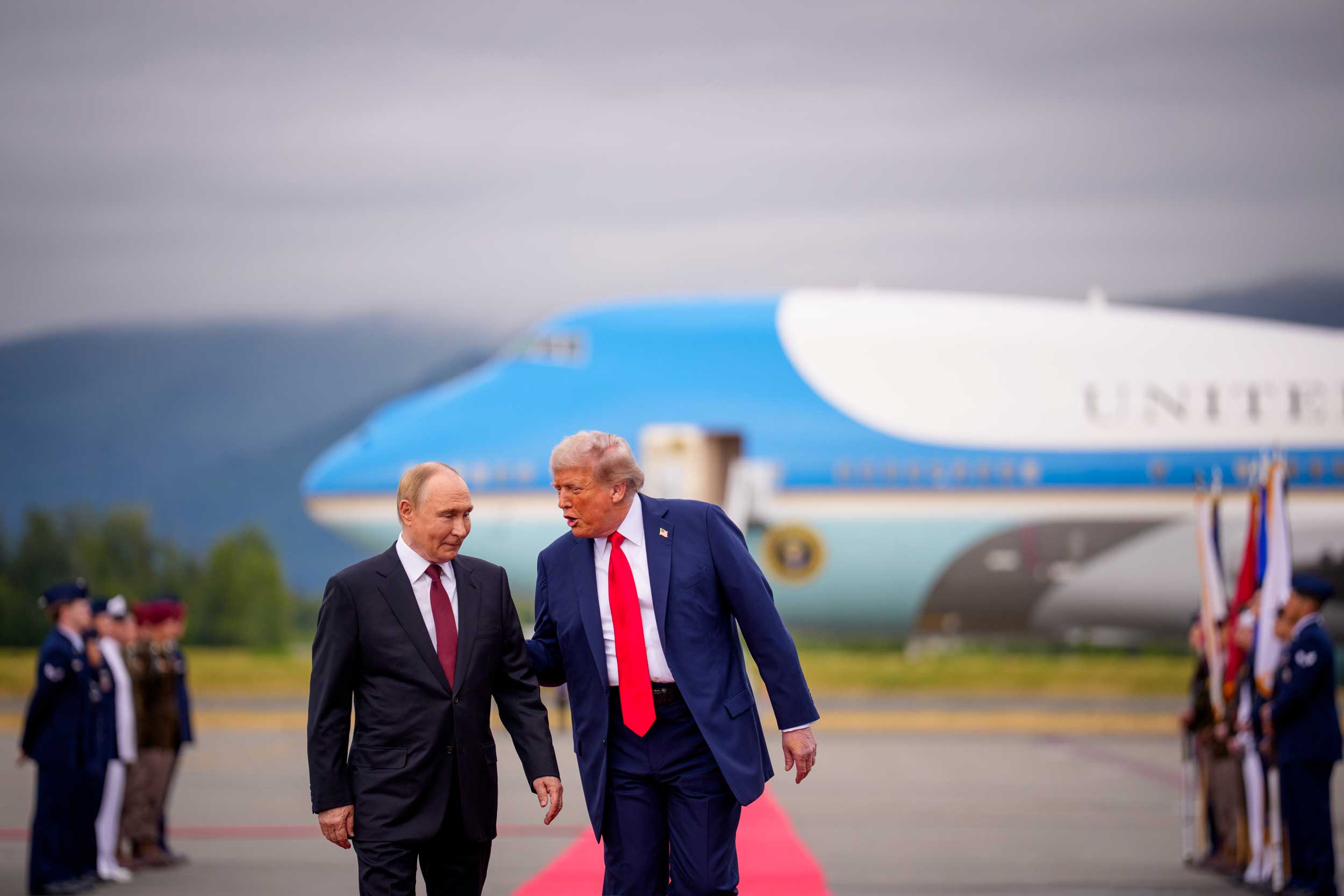
In many ways, the ‘special relationship’ is in rude health. UK and American sources say Jonathan Powell, officially Starmer’s national security adviser and unofficially the head of UK foreign policy, helped with the substance of the Gaza deal, alongside his old boss Tony Blair, Trump’s special envoy to the Middle East Steve Witkoff and the President’s son-in-law Jared Kushner.
When Trump hit Russia’s two largest oil companies, Rosneft and Lukoil, he did so just days after Britain sanctioned the same firms. ‘We were able to give Witkoff a palette of options when the President was deciding what to do,’ a senior government source says. ‘And we’re prepared to talk Trump’s language on tariffs.’
The proto-populist Trump and the cautious, legalistic Starmer are odd bedfellows, but insiders say the relationship is still strong. One witness to their exchanges says, ‘Keir agrees with him as far as he can and then he’ll say, “I disagree on that but let me explain why we see things differently.” Trump looks at him and listens and says, “OK.”’
Keeping a volatile President on side has been one of the signal successes, if not the signal success, of Starmer’s premiership, but there are some cracks in the paintwork. ‘President Trump likes winners,’ says a Trump aide who follows British politics, ‘and Starmer is beginning to look like a loser.’ On areas of domestic policy Trump has become more outspoken in recent months about what he sees as Britain’s sclerotic economic approach, as well as the failure to exploit energy resources in the North Sea. ‘The President tore him a new one on this stuff in private at Chequers,’ a US official says.
Among the MAGA fraternity in Trump’s team – including the Vice-President J.D. Vance, Miller and Gorka – there are also concerns that the UK has allowed mass migration to dilute its cultural heritage. All three have an Atlanticist Judeo-Christian concept of western civilisation in which American democracy stands in a direct line of descent from Magna Carta, the rule of law and trial by jury.
Vance has spoken about the erosion of free speech in Europe. Miller is urging British officials to limit migration, as America did between the 1920s and 1970s, to allow new arrivals to be properly integrated. He sees Islamist imports from the tribal areas of Pakistan as a cultural challenge Britain will need to deal with. They cite the fact that the FBI was set up to combat the Mafia, who along with millions of Italian migrants arrived in the US in the 19th century. This is uncomfortable territory for many in No. 10, but one senior figure says: ‘If your friends are telling you something out of concern, then perhaps we should listen.’
On illegal migration in particular, the Americans find the inability of the government to prevent cross-Channel crossings inexplicable. Asked what Trump would do, one source suggests: ‘Tell the French that British intelligence officers and special forces will destroy the boats before they sail. Slash them with knives, use snipers. Burn down the warehouses of the gangs, use cyber to attack their communications.’
For our next ambassador, ‘Do not pick someone who has, at any point, gone on the record to criticise Trump’
The most acute source of tension was the forced departure of Peter Mandelson as ambassador to Washington over his friendship with the convicted paedophile Jeffrey Epstein. While Mandelson was an adept operator, some in the President’s circle never forgave his historic anti-Trump comments. Trump’s campaign manager Chris LaCivita publicly condemned the appointment (and privately told British friends that Mandelson was doomed to fail because he had criticised Trump). US officials say White House aides boycotted dinners at Mandelson’s official residence at the instigation of Wiles, though some did meet him outside. ‘There was great irritation that Mandelson was rammed through in the dying days of the Biden administration,’ a source close to the White House reveals.
Mandelson was initially saved by Mark Burnett, the British-born Apprentice producer who is Trump’s envoy to the UK. He convinced Trump that Mandelson was contrite. A US diplomat says: ‘Mark knew a rejection would be awkward for Morgan McSweeney [Starmer’s chief of staff],’ who had pushed Mandelson’s case. The episode suggests the Trump team, often depicted as a bull in a China shop with allies, actually has a sophisticated and sympathetic understanding of No. 10’s internal issues.
Insiders say LaCivita will probably run ‘opposition research’ on any new candidate for ambassador. ‘Do not pick someone who has, at any point, gone on the record to criticise Trump,’ the US diplomat says. That rules out Mark Sedwill, the former cabinet secretary, who has denounced Trump publicly for ‘blundering’ and ‘capriciousness with allies’. It is understood that he has not actually applied.
Those with their hats in the ring include Christian Turner, the political director at the FCDO, and Simon Manley, who was ambassador to the World Trade Organisation and the United Nations in Geneva until July, plus a Ministry of Defence official. Oliver Robbins, the Foreign Office permanent secretary, is expected to give Starmer a list of those who are ‘appointable’ by the end of the month.
Varun Chandra, Starmer’s business liaison man, who played a key role in ensuring that Britain got reduced tariffs, is widely seen as the frontrunner. The US diplomat says Chandra got his current role because Mark Burnett told Starmer’s team that ‘he knows how to talk to Americans’. A second source says: ‘[Howard] Lutnick [the commerce secretary] loves him, [Treasury secretary Scott] Bessent loves him, Susie Wiles loves him.’ It is also said that James Roscoe, the acting ambassador, is well plugged in with the White House; US officials say Trump ‘likes him’ and they hope he remains in some capacity.
The final area of potential tension is China, where Trump is trying to neutralise Beijing’s control of the global market in rare earth minerals, while Starmer is desperate to go to China to secure investment. Labour is embroiled in the fallout from the recent collapse of the trial of two suspected Chinese spies and Beijing’s demand that it be allowed to build its vast new embassy in London, which many view as a security risk. ‘It’s been made clear by Beijing that Keir’s trip to China is contingent on them getting the embassy,’ a government source says.
Many in Washington are sceptical about whether the economic spoils of cosying up to Beijing will be worth the political costs. When Rachel Reeves visited China she only secured investments worth £600 million, a rounding error in government finances. By contrast, whoever becomes ambassador to the US will try to hurry into play the £150 billion pledged by US companies as part of the recent UK-US tech deal, which Chandra and Mandelson helped secure.
It is not all good news for Trump. On economic matters he has a lot of the same problems as Labour: stubbornly high inflation, a sluggish job market and (as the election of the socialist Zohran Mamdani as mayor of New York City shows) facing a left-wing populist surge like the one fuelling support for the Green party in Britain.

Both Trump and Starmer face crunch elections next year: the Prime Minister in the Welsh, Scottish and council elections, the President in the midterms. A big defeat might cost Starmer his job. If the Republicans lose control of Congress, Trump might well face fresh indictments from his political opponents or another impeachment charge. The loss of the Virginia and New Jersey governor races on Tuesday night points to a tough road ahead. The polling circulating among Republicans shows the Democrats winning the House of Representatives by a single seat next year, but predicts Trump will hang on after redistricting ward boundaries.
On Tuesday, Reeves rolled the pitch for massive tax rises in the Budget, blaming her economic inheritance, but even Labour insiders found her unconvincing. A source close to Downing Street characterised the Chancellor’s argument as: ‘Don’t blame me, I’m just the Chancellor. We have no power, we are just the government.’
Trump also has a big speech on the economy this week, and there are similar stirrings in MAGA world. ‘The numbers are shifting on the economy,’ says a prominent Trump ally. ‘I think people are concerned. They’re not feeling like prices are much lower. We’ve done a lot of international stuff. We need a pivot to the economy.’ However, the Republican pollster says Trump’s early success and his decisiveness mean that even those feeling the pinch are still prepared to give him the benefit of the doubt: ‘People are feeling worse off but they think he has a plan.’
The same, demonstrably, is not true of Labour, where Starmer’s failure to ‘go big’, as Trump has done, has left Labour vulnerable. Perhaps Starmer should draw up plans to bulldoze part of Downing Street.

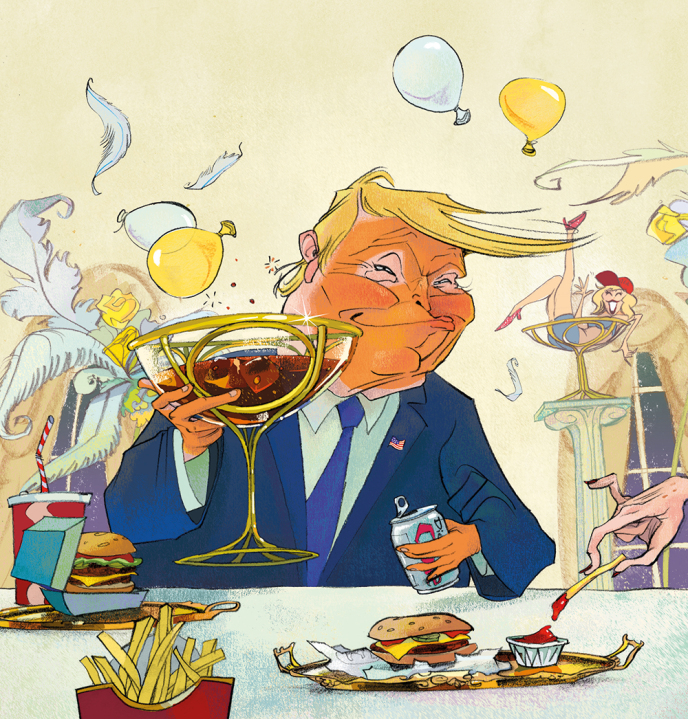

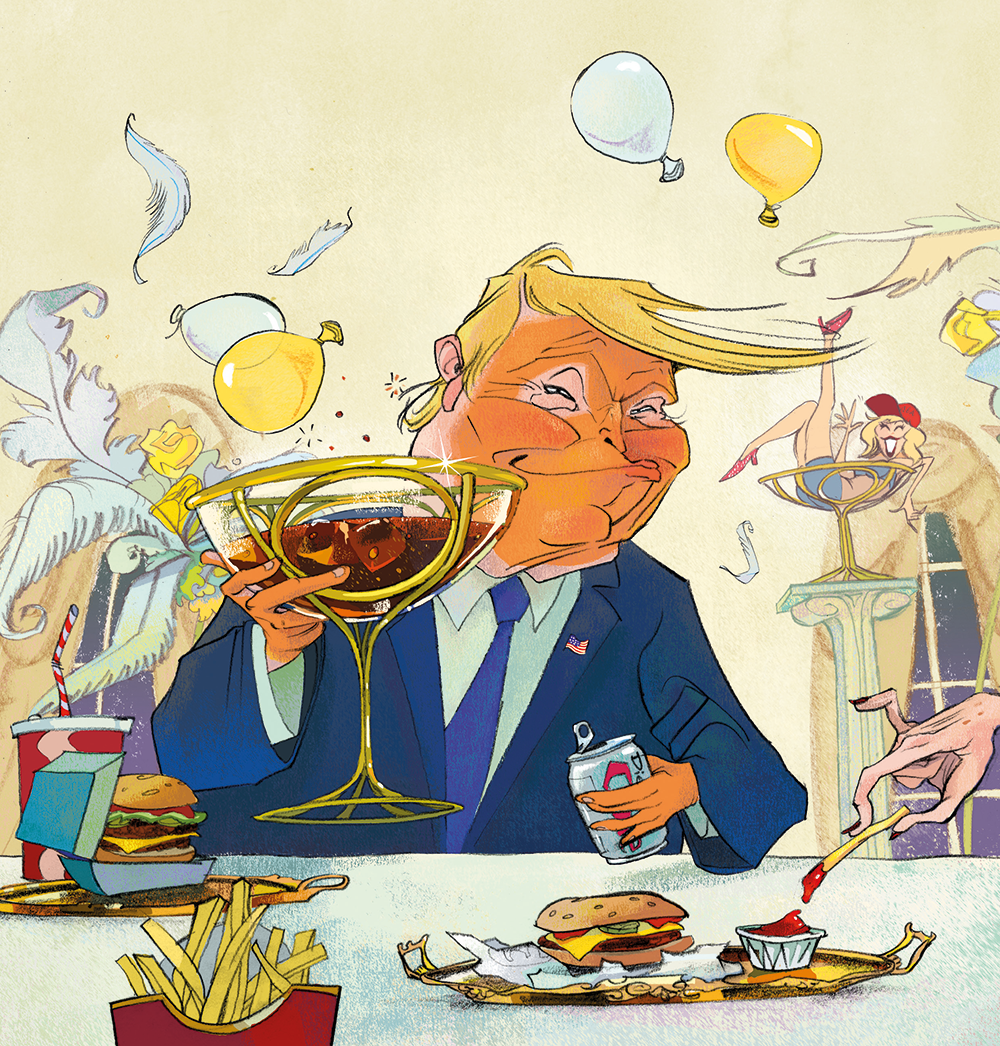
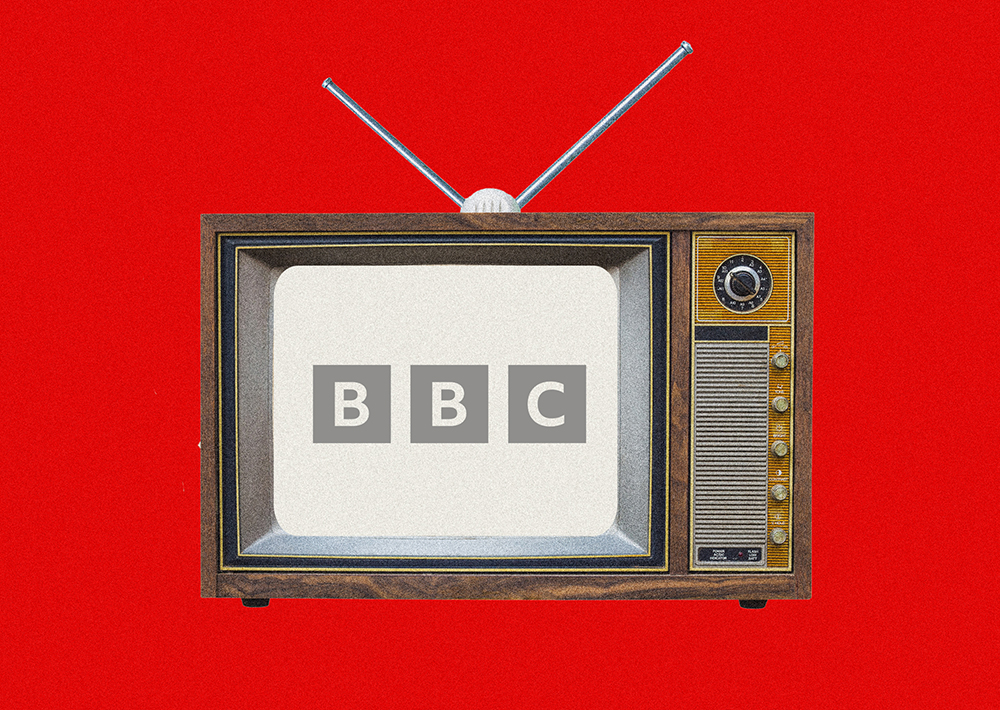




Comments